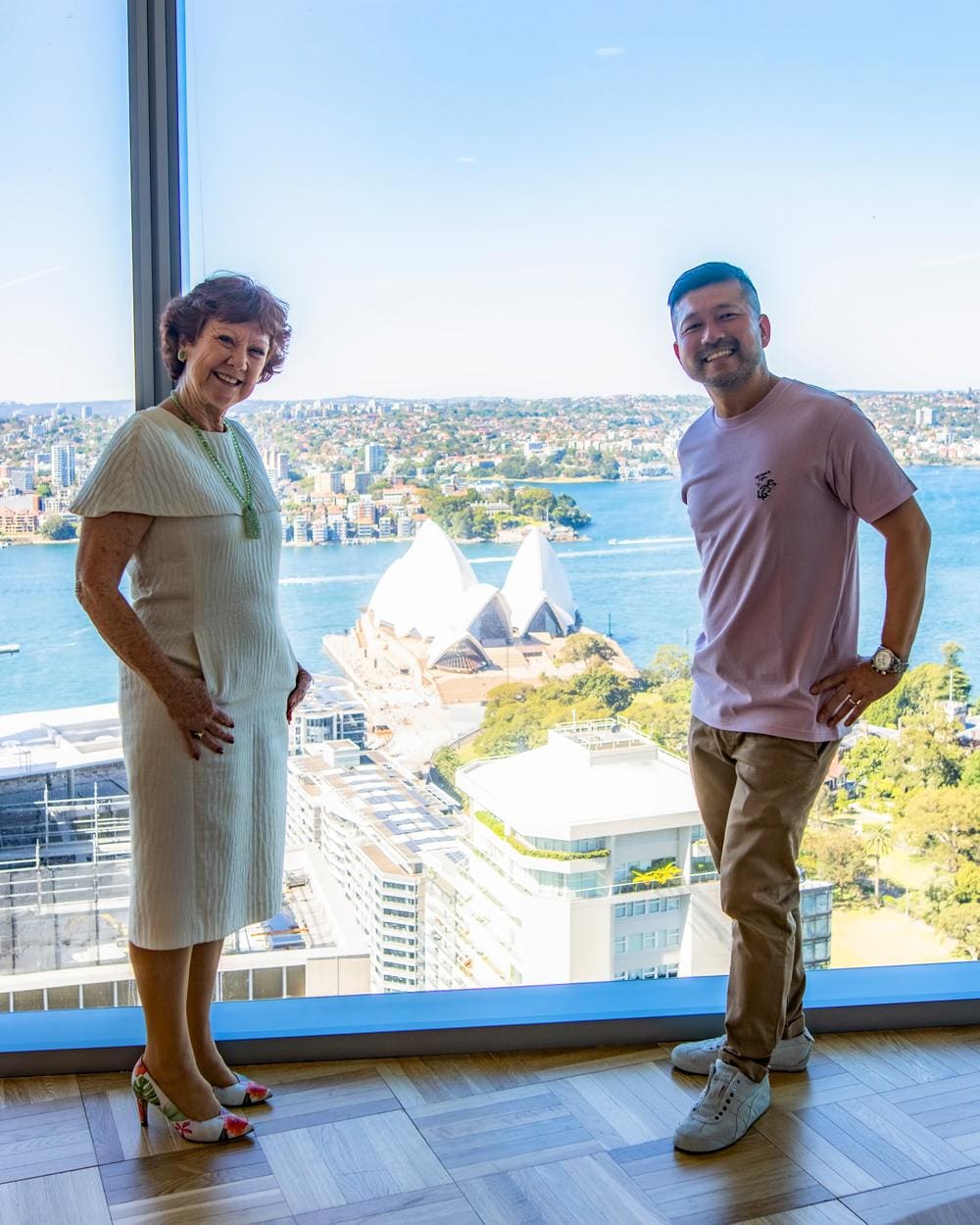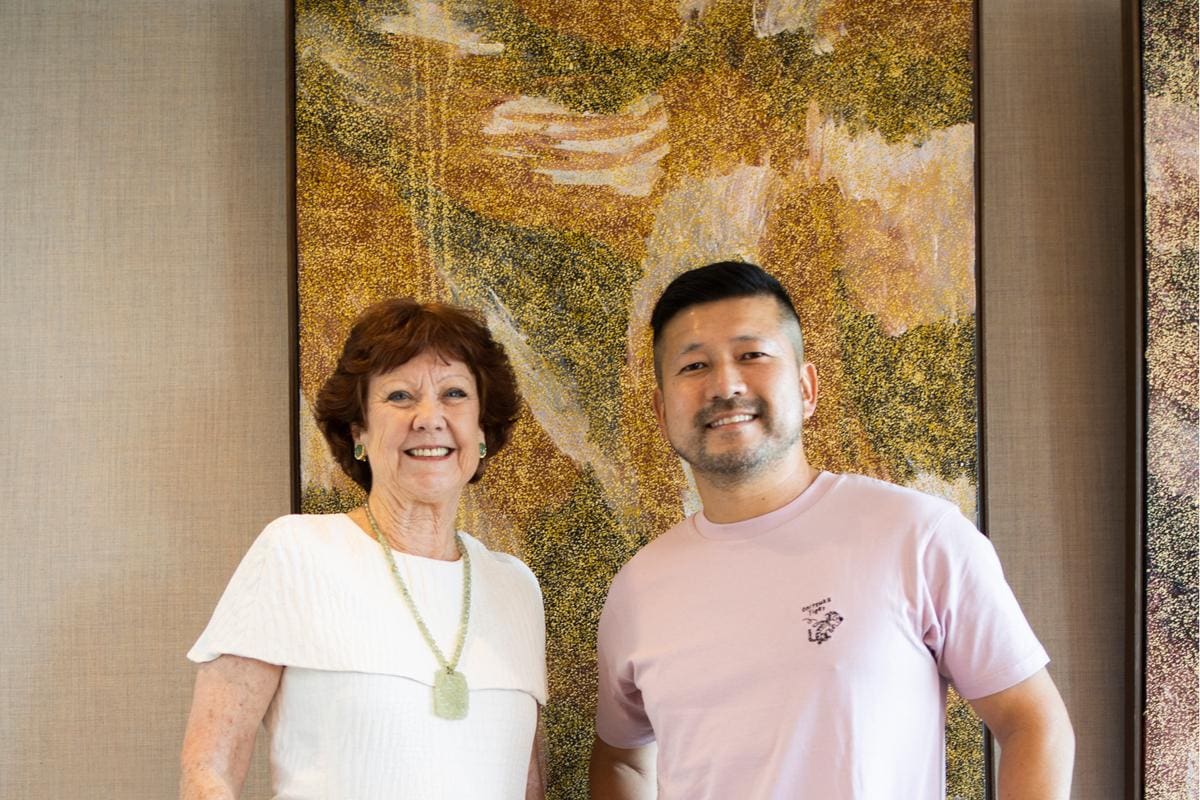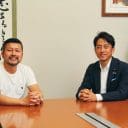In Conversation – Pioneers in Business Vol.19
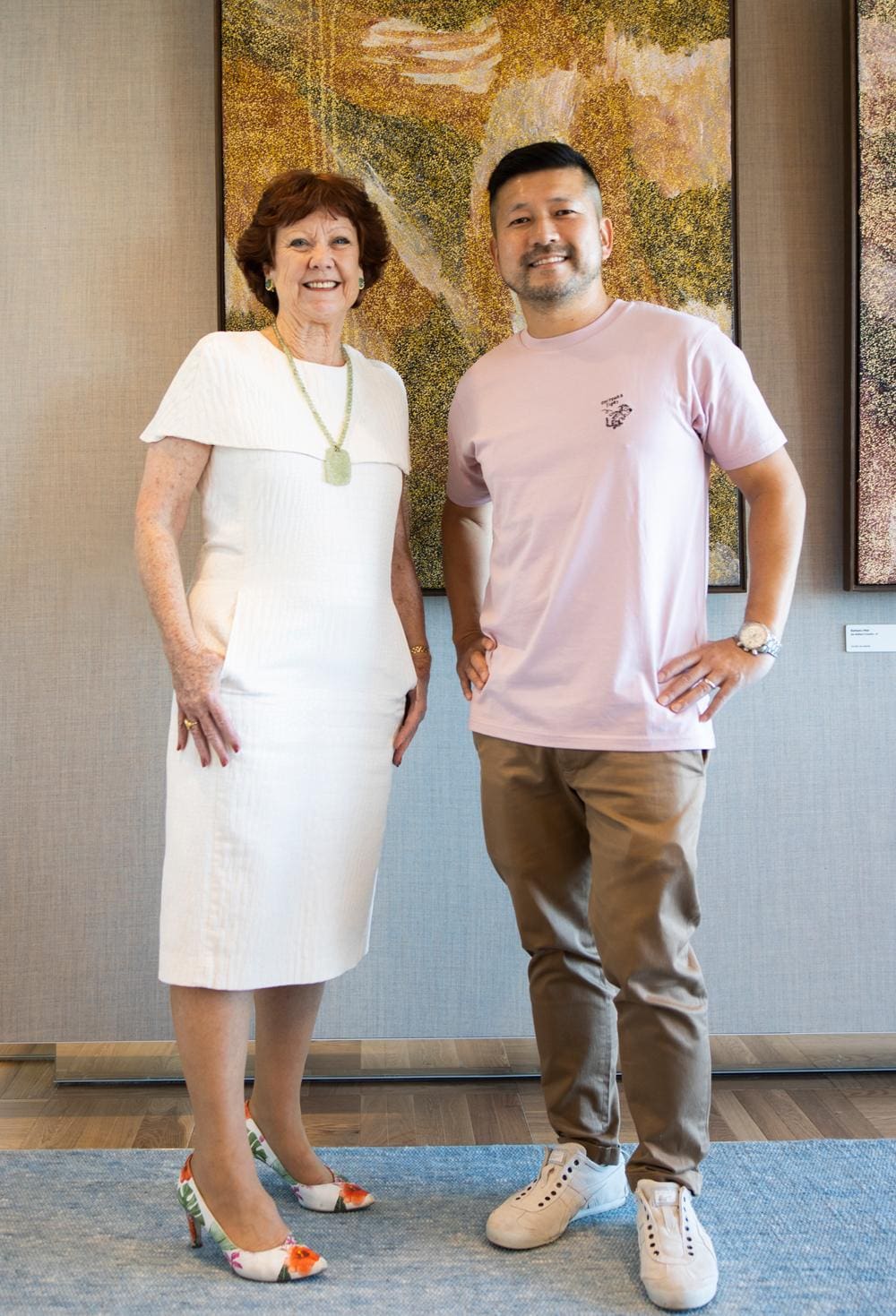
This special feature sees Yoshinori Sakuno, the founder of cross-cultural marketing firm, doq® and Chairperson of Nichigo Press, in conversation with various business personalities. In this edition, he speaks to Debra Hazelton, who links Japan and Australia as the Vice-President of AJBCC.
(Editorial supervision: Kazuya Baba. Photography: Satoko Clarke)
PROFILE
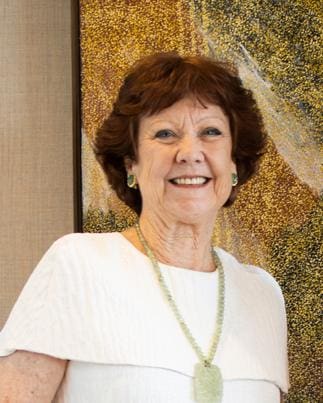
Debra Hazelton
Studied at the University of Sydney, the University of New South Wales and Keio University, where she obtained degrees in Japanese Literature, Philosophy, Economics and Finance. The first female to be Treasurer/ Country CEO of an international branch of Commonwealth Bank of Australia (CBA), first Non-Japanese Senior Executive at Mizuho Financial Group Tokyo Head Office and was a Board Member of the Australia-Japan Foundation. Currently, she is the Chair of AMP Ltd, a leading Australian financial services company, a Non-Executive Director of Treasury Corporation of Victoria (TCV), and a Non-Executive Director of PERSOL Asia-Pacific (Singapore) and Vice-President of AJBCC since 2021.

YOSHINORI: I’d love to hear about your life story. You lived in Japan as an Australian woman and then moved back to Australia to take a leadership role at AJBCC and a chair role at AMP. Please share with us how you started your career and why you moved to Japan.
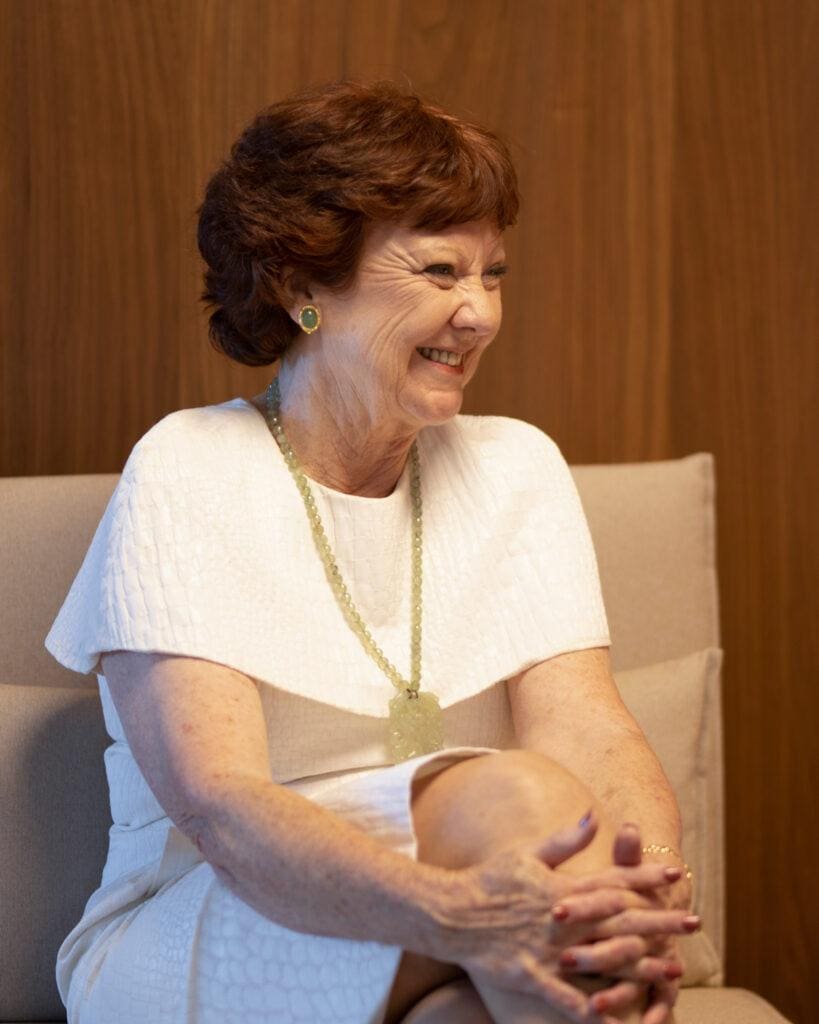
DEBRA: I started my career as a High School Japanese Language Teacher. After years of teaching, I wanted to challenge myself with something different. Then, I studied for a Master of Commerce and joined CBA, where they supported me in taking the Monbusho scholarship at Keio University. It was in the late 80s when Japanese investors started to become interested in Australian bonds and Australian dollar trading. While juggling studying and working at the CBA’s Tokyo Branch, I discovered that I really enjoyed the trading room’s fast pace and global connectivity. It seemed very exciting. After this realisation, I decided to take the opportunity to become a bond dealer.
YOSHINORI: It’s a significant shift from Japanese Language Teacher to Trader. What made you make the switch?
DEBRA: I realised I wasn’t exactly who I thought I was. I was amazed that I enjoyed the trading room environment because I always thought I would be a poet or an artist. My first degree is in classical Japanese literature and traditional Western philosophy. I studied for the Master of Commerce and the PhD only because I thought I should stretch myself. I didn’t know I would fall in love with the fast-paced, stressful world of global financial markets. It was a real surprise.
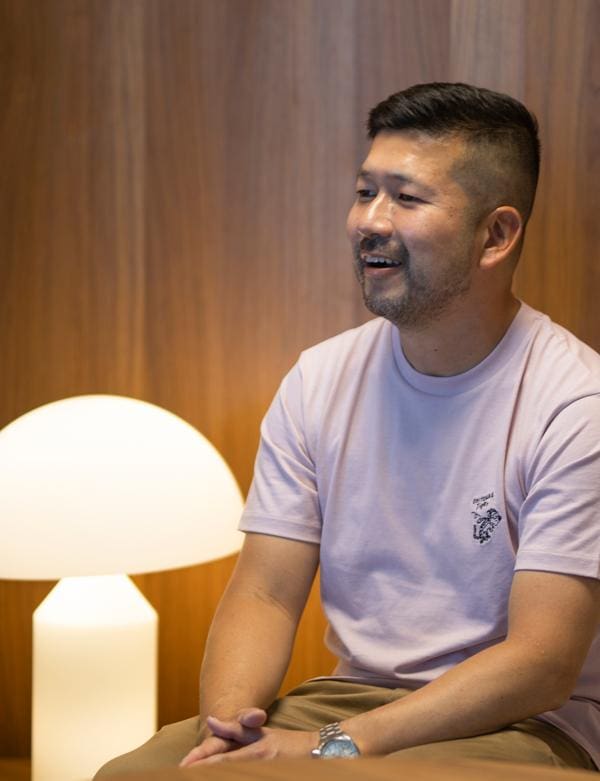
YOSHINORI: How did your career progress after becoming a Trader?
DEBRA: I really enjoyed working in CBA’s Sydney trading room for a few years, got married, had a baby boy and then CBA sent me back to Japan to be the Treasurer. They were pretty brave and supportive to do that, as I was the first woman to be a Treasurer of an offshore branch. Eventually, I was appointed as the CEO of CBA in Japan. Afterwards, Mizuho Bank approached me to be their CEO in Australia. After seven successful years, Mizuho Financial Group offered the global role in their Otemachi Head Office to lead the globalisation strategy. I was the first foreigner, non-Japanese, to work in an executive position based in the Mizuho Head Office and probably in any of the megabanks. Let alone being a woman in such a senior role was incredibly rare. I did that for another few years, then came back and took on an advisory role with Kokusai Business Advisory and non-executive board roles with the Treasury Corporation of Victoria, PERSOL Australia and AMP Capital, and then later the Chair of AMP Ltd.
I was lucky to be blessed with opportunities to challenge myself
YOSHINORI: That’s a significant achievement. What helped you achieve where you are today?
DEBRA: I relish opportunities that are both challenging and worthwhile. I do believe that I’m capable, and I’m a hard worker and not afraid of testing myself. What’s crucial is not to beat yourself up for not being perfect and to continue learning.
YOSHINORI: Was there any experience when you were younger that helped elevate your confidence to tackle challenges and keep up your motivation?
DEBRA: I like to challenge stereotypes. I didn’t come from a privileged background. I often get frustrated when other people’s opportunities are unfairly limited based on stereotypes. I am keen to challenge them to highlight that such stereotypes marginalise people.
YOSHINORI: That’s excellent. The last few years have seen Japan and Australia form even stronger ties. What do you imagine the future of Japan-Australia relations to look like in the next ten years?
DEBRA: The extended relationship around the complementarity of the two countries will further evolve.
The last ten years have recognised even broader opportunities for partnership. In the ten years ahead, we will continue to build strong ties in trade and commerce, but the importance of the Japan-Australian relationship in terms of national security has also become more obvious as geopolitical tensions have come to the fore. 2023 is the 60th anniversary of the joint conference for the Australia-Japan Business Cooperation Committee (AJBCC) and Japan-Australia Business Cooperation Committee (JABCC). This year the conference will be held in Melbourne and the themes will be around the need to work together on national and regional security issues, green energy transition, and technology innovation together with the continuing focus on improving diversity in the workplace and collaborative contribution to improving regional infrastructure. Overall, there is an even stronger emphasis on working together as partners.
YOSHINORI: Japan and Australia have a strong political and economic relationship. However, the people of the two countries still feel distant from each other. What are some ways to enhance the connection and understanding between the people of Japan and Australia?
DEBRA: I would say it’s a mixture of everything. Working together in newer fields like technology and innovation will break down some perceived walls between economics and business and day-to-day life since Australians who work with people in more diverse environments will get to know Japanese people much more deeply and vice versa.
Also, we can’t forget the deep cultural relationships formed through programmes like the Japan Exchange and Teaching (JET) programme and other exchange opportunities. They add up to being very influential. I was also an exchange in Osaka in my late teens – exchange students experience Japan on a different level, and this acts as a powerful catalyst for deep understanding and partnerships. Exchange students and their hosts become great ambassadors on both sides.
YOSHINORI: Do you have a vision for your career?
DEBRA: I don’t really have a fixed “vision” for my career. I didn’t start with what you would call a plan, however at this stage of my career I do recognise the types of roles I would like to continue to pursue. I really enjoy working in complex interconnected environments involving ambiguity and nuance on both an intellectual and practical level. I guess that’s why I also find cross-cultural and cross-lingual environments rewarding. For example, I am currently on the board of PERSOL Asia Pacific Pte. Ltd and working with my colleagues from Japan, Australia and across Asia on sustainable business growth I find it fulfilling to work with different types of people, taking on challenges that make a meaningful difference. In this case, I am also very grateful to have the opportunity to work with one foot in Japan and another in Australia.
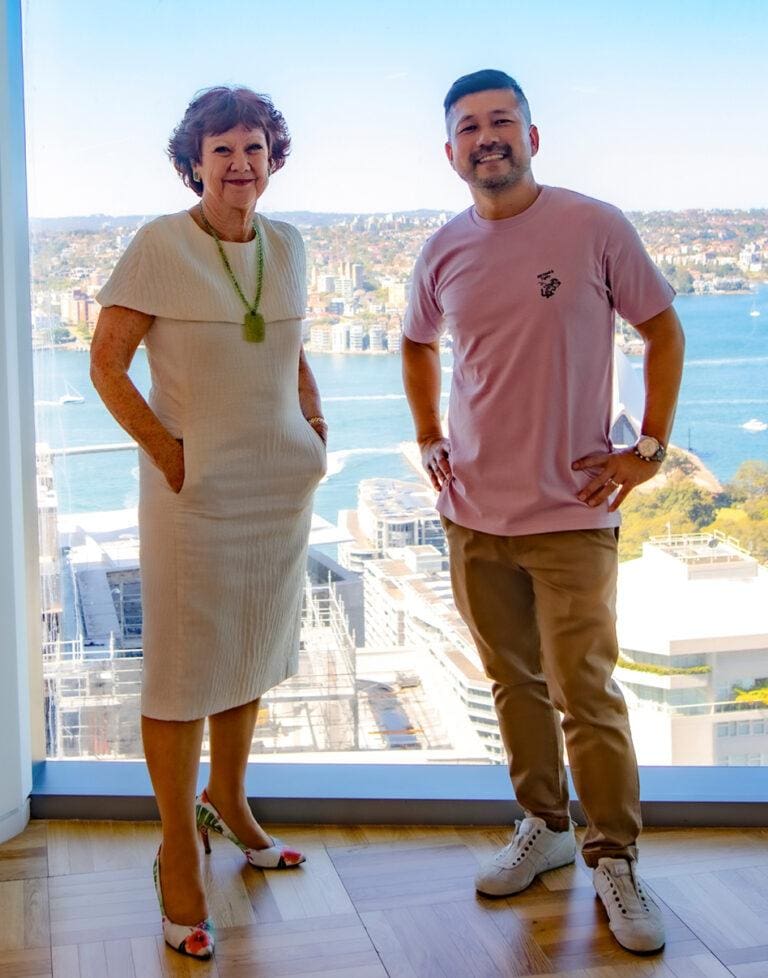
Hard work is followed by opportunities
YOSHINORI: Let’s move on to gender equality, diversity and inclusion. You are a successful female leader representing Australia-Japan relations, as well as a leader in the finance industry. What would you say was the most challenging for you as a female leader?
DEBRA: I think it’s not about being female. I think it’s about being the “other.” Whether you are perceived as an “other” due to being female, from a different ethnic or social background, having different views about religion or lifestyle, or being too young or old, you can be excluded from opportunities. Even if your capability is recognised, you might not be given the support or resources you need to deliver on your work challenges. I feel strongly about diversity because it should be considered something very positive – and positive enough to warrant extra reinforcement when required.
YOSHINORI: When did you most feel like an“other”?
DEBRA: I’ve been the first of “others” many times. Especially when I look back, there were plenty of times when I think that I could have achieved more if there had been more recognition and support to compensate for being the first of an “other” in the role. In my roles in Japanese banking, I was often the only woman in a room of several hundred people, or one of two or three at most. On top of that, I was often the only non-Japanese. On the flip side, there were men and women, Japanese and non-Japanese, who put themselves out to give me that opportunity. So I do feel very thankful to those – for example, my CBA bosses who sent me to Japan as Treasurer and then supported me as local CEO, and the President of Mizuho Financial Group, who believed in me to drive multiculturalism across his global businesses from the megabank’s Tokyo Head office. It was sometimes difficult, but I’m very grateful for the opportunity to challenge the stereotypes and to try to prove that “others” can do it.
YOSHINORI: When we’re intimidated, we must be strong and confident enough to grasp the opportunity. How did you manage that mindset?
DEBRA: First, you must believe you can do it, and take up the challenge with energy and firm commitment. For me, it’s also about being able to say to yourself, “what is the worst thing that can happen?” If the worst thing is that you could personally damage your ego, then I would argue it’s worth the challenge.
YOSHINORI: That’s fine. What doesn’t kill you makes you stronger.
DEBRA: Yes, that’s the spirit. That’s not too bad at the end of the day. It means you have to be kind to yourself sometimes, and also have a degree of humility. I was also lucky to have a supportive network of people allowing me to put myself forward.
YOSHINORI: What is your point of view on the difference in leadership styles and cultures between Japan and Australia?
DEBRA: Let’s talk about the cultures first. The cultures are undoubtedly different. Until I went and became the Jinji- Honbucho (Headquarters Chief of HR) for Mizuho, I didn’t know how different the Japanese HR system was from everyone else in the world. It looks like nothing else. Japanese leaders don’t really have the opportunity to choose their leadership style. It’s set, and people believe it’s normal because it’s been around for generations. You have to take all that into account when you look at the Japanese leadership style. On the other hand, successful leaders eventually develop similar traits in Australia and Japan. They listen, challenge norms, encourage diversity of thinking and build safe environments for people to flourish. Great leadership is the same, but in the two countries, they probably start from different points.
YOSHINORI: Most people you work with in a Japanese organisation are Japanese. Whereas in Australia, people come from diverse ethnic backgrounds. When you’re in a multicultural society, your leadership style is one where you have to be more careful about being fair.
DEBRA: Yes. Japan is an extremely high context culture, so communication is completely different to Australia. Most people start from the same assumptions, and it is very hierarchical. When I was running Mizuho in Australia, there were at least 20 ethnicities in the organisation. Whereas in Tokyo’s Otemachi head office, at the time, there were about 5000 employees, and almost all were Japanese. When you are in a multicultural environment, you need to be more open and aware of unconscious bias, complex relationships, and different ways of thinking. Ultimately, it comes back to listening, observing, learning and holding back from making assumptions based on stereotypes – at least being flexible enough to question your assumptions. I always try to walk in the shoes of others and promote a “generosity of spirit”. That means if you don’t know, give them the benefit of the doubt. For example, if someone looks mean, the benefit of the doubt would say, “they’re upset about something, and it’s not aimed at me – it’s about them.”
YOSHINORI: That’s a great mindset to have.
DEBRA: Yes. It helps to form an inclusive environment that helps everyone feel safe.
YOSHINORI: Moving on to the difference in diversity and gender equality between Japan and Australia, what are some of the big differences in the two countries?
DEBRA: Both countries have considerable work to do in this space. I would say that Australia is more mature in recognising that the importance of increased inclusion and diversity in the workplace is not only driven by social equity reasons but also drives significant economic productivity. If this message can be permeated into Japan a bit more, then it might be recognised as intrinsic to business strategy as opposed to something on the side that’s simply an HR task. At the JABCC/AJBCC Conference in Tokyo last year, we looked at the proportion of senior women in management positions across OECD countries, and Japan was not only one of the lowest but also virtually had the same percentages as 20 years ago. Of course, some Japanese companies are making great progress – we heard very encouraging stories from Fujitsu Australia and Shiseido Japan, but probably not enough companies recognise the genuine value of increasing diversity and inclusion (D&I) – rather it is seen as a box-ticking exercise.
At the board level, in Australia, success in increasing gender diversity has been driven by requirements to disclose and report to investors and stakeholders, and that’s starting to happen in Japan. I know from my interaction with Japanese boards that activists, often international investors, are driving that at the prime-level listed companies as part of the ESG agenda. That’s a good thing, but there’s still a problem in Australia, and more so in Japan, because you have to build a pipeline of C-suite women that will eventually join the boards, and there aren’t enough. It’s a catch-22 situation – we need more people from diverse backgrounds in senior roles demanding the change. One practical way to drive that change is to report on senior management level diversity as well as board diversity. That’s why going forward, the future leaders at AJBCC and JABCC will help set up a data-informed baseline to report progress at each annual conference to inform what works and what doesn’t. This should encourage constructive conversations and hopefully stir change.
YOSHINORI: Revealing and reporting the statistics of diversity and equality is an excellent start. Young and talented employees would realise that something is odd when reviewing them and may refrain from working there.
DEBRA: That’s right. It can also directly affect the bottom-line. Business partners may also say, “No. I’ve got other choices.” and look for alternative product suppliers and service providers. I think you told me about your architecture friend, and they said that they would not work with companies, even if they have the best proposal, if they don’t evidence commitment to diversity in their workplace through actions and reporting. I’ve heard that repeatedly at other companies now. If you choose not to demonstrate and report, that says you’re off the list already.
YOSHINORI: Yes, I shared that story with you. It also points out the necessity to report and reveal the numbers to get ahead.
DEBRA: I don’t like the idea of shaming companies. You don’t want to do that. You want someone to say, “I wonder why Company X is doing so much better than the other company. What are they doing that the other company isn’t doing that I can learn from?” It has to be viewed as a learning experience.
YOSHINORI: Yes, a benchmark to drive change. Do you know the Japanese aphorism aka shingo minna de watareba kowakunai, it means it’s no longer scary crossing a red-light signal when everyone crosses together. Japanese people like following others. Therefore, when companies discover that their numbers don’t match the others, they will act on it to follow the trend.
DEBRA: Words such as “we’re doing all these great things” are meaningless next to stagnant charts, which show no progress.
YOSHINORI: Exactly.
DEBRA: We often talk about long-term planning and making people accountable to deliver on what they promise to do regarding targets, and reporting against them. We can enhance transparency through data.
YOSHINORI: While also changing the mindset over the years.
DEBRA: Yes, the leaders must recognise the benefit of diversity. It’s about survival for some companies. There is a trend now towards the need for ecosystems and partnerships to innovate and succeed in rapidly changing environments. If you don’t have a group of people that can work in diverse innovative environments, you won’t survive. It’s more than just linear business growth.
YOSHINORI: I would like to hear about your experience working as an Australian in Japan, at a Japanese company, the first non-Japanese CEO of Mizuho in Australia and several leadership roles in Japanese-related organisations. What has been the most challenging and enjoyable for you?
DEBRA: The most challenging is the personal frustration I’ve sometimes felt when not being able to make change happen as dramatically and as quickly as I wanted. The “vision” would sometimes seem perfectly obvious to me, but when I could not persuade the mindsets of some colleagues or leaders and it was challenging. I would have to step back and tackle it differently with more patience.
YOSHINORI: Is it about the process or mindset?
DEBRA: Mindset, I believe. As part of my role in HR for Mizuho Financial Group I was in charge of recruitment. That meant going to Tokyo Big Sight for three days at the beginning of April each year and having about 10,000 people in their virtually identical black recruitment suits come in to understand what Mizuho could offer them in terms of a career. It was very different from the rest of the world. The same kind of thing would happen when we flew to the USA for the Boston Job Fair each year. In terms of what to wear to these events, there were Boston stores that stocked the same black and white “recruitment outfits” for the Job Fair if you wanted to apply for a role at a Japanese bank. After seeing that, I challenged my team in Boston to attract at least one person a day into the Mizuho booth that didn’t present themselves in the Japanese standard recruitment attire. Perhaps, someone with blue hair and ripped jeans, to broaden our views on who we needed to attract and accept. Some of our team found that an exciting and meaningful challenge.
One of my most fulfilling experiences during my time in HR at Mizuho was when I focused on the LGBTQ+ community and allies in the context of the importance of D&I. Something clicked, and my Japan-based-HR team of a few hundred people became really engaged. Perhaps there was a sense of fatigue and frustration around the topic of gender diversity, but when we approached this topic it seemed to be new, beautiful and global.We enthusiastically linked with other LGBTQ+ and ally groups across Mizuho’s large global network, and the topic seemed to transverse into other examples of “diversity” as well.
One day, I mentioned that we were going to be marching in the Tokyo Pride Parade to one of the most powerful men in Mizuho – he had a strong global reputation. He looked like a traditional Japanese executive, but his eyes lit up as he most eloquently explained why the movement was so important and the relevance of the rainbow symbol. His active involvement with our work encouraged other Mizuho leaders to engage. It was the first time any megabank had marched in the Tokyo Pride Parade. This was in 2017. We held the rainbow flags high and wore our Mizuho t-shirts. To the front of us was the United Nations team, and a global investment bank team followed us from behind. People on the sidewalks in Shibuya were surprised to see Mizuho there and took photos while calling out “I bank with Mizuho!”. Moments like this make it worth persevering – because sometimes something clicks and you feel that you are making a positive difference. It was invigorating. The broader message was that it’s not only the right thing to do, and good for business, but it’s great fun and very rewarding to connect with people who have diverse ways of thinking and backgrounds. I saw it as an unexpected breakthrough in approaching the value of diversity. As an aside, Mizuho soon thereafter became the first bank in Japan to offer a home loan product that recognised the incomes of both partners in same sex relationships.
YOSHINORI: Before we end, do you have any advice for our Nichigo Press readers regarding career development and working in Japan and Australia?
DEBRA: Sure. I would say always back yourself, take on worthwhile challenges, work hard, don’t expect perfection, and give yourself the right to make mistakes. Make sure you constantly challenge who you are. I was stunned to find out what else I enjoy, and we also change as we get older. Lastly, find people who genuinely support who you are and your career, and try to surround yourself with those people. At the end of the day, everything comes down to building respect and trust with the people you work with, so make sure you absolutely deserve that respect and trust. If you can implement these steps, opportunities will follow.
YOSHINORI: I also love how you said, “what’s the worst that could happen.”
DEBRA: Japanese people can be more prone to perfectionism but remember that nothing is ever too personally embarrassing if it is done with good intent. In fact, sometimes mistakes or problems bring people much closer because you tackle adversity together to find a solution.
YOSHINORI: Thank you for your time. I’m sure your words and experience will inspire many of our readers.
